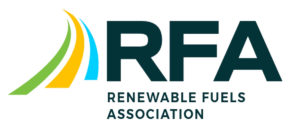 The National Biodiesel Board (NBB) comments on EPA’s supplemental proposal for 2020 renewable volume obligations urge the agency “to properly account for small refinery exemptions, address the remand of the 2016 standards, and increase the 2021 biomass-based diesel volume.”
The National Biodiesel Board (NBB) comments on EPA’s supplemental proposal for 2020 renewable volume obligations urge the agency “to properly account for small refinery exemptions, address the remand of the 2016 standards, and increase the 2021 biomass-based diesel volume.”
NBB is encouraging EPA to use a three-year average of the gallons EPA actually exempted. “Unfortunately, the proposal uses an average of past exemptions recommended by the Department of Energy (DOE) rather than an average of actual volumes waived,” NBB writes. “Because EPA has ignored DOE’s recommendations in each of the past three years, that methodology would only account for about half of the annual impact of recent small refinery exemptions.”
NBB also points out that EPA does not propose to do anything about small refinery exemptions before 2020. “Over 4 billion gallons of demand for biofuels has been lost due to retroactive small refinery exemptions for compliance years 2015 through 2018. This impact has been particularly significant for biomass-based diesel producers because biomass-based diesel RINs can be used to satisfy multiple obligations under the RFS,” NBB writes. “Despite having the means to do so, EPA has not proposed to do anything in the Supplemental Notice to address this massive loss of renewable fuel demand.”











